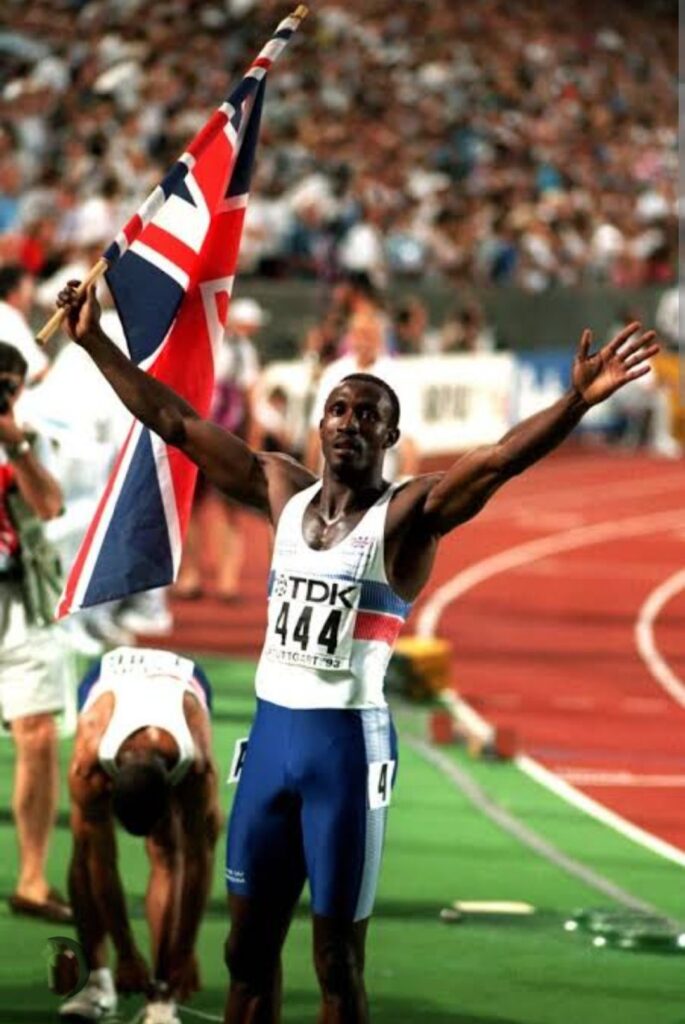While Christie was one of the most successful athletes in Britain, his achievements also made him a target for criticism from the media, law enforcement, and unwanted advances.
I’ve been told I should know my place – Christie
Christie expresses his pride in being British, despite watching a documentary that portrays him in a negative light. The assessment is that while England’s footballers have faced their own challenges, Christie’s controversial reputation places him as a close contender for enduring difficulties in the country.
When Christie sensationally won gold in the 100m final of the 1986 European Championships in Stuttgart (“I must have been ranked about 15th”), he celebrated on track by draping the union jack over his shoulders – only to be ticked off. Now 64, Christie recalls being told by a British official that it was not the done thing: “He meant it was not the done thing for a Black person.”

Back home in London, the Jamaican-born athlete wore his team tracksuit proudly on the street, on the tube, everywhere. Until one day a policeman stopped him and asked a question that still pains Christie. “‘What’s a nigger like you doing wearing a British tracksuit?’ It hurt a lot.”
“I’ve been told many times that I should know my place,” Christie, 64, told BBC Sport in a recent interview. “I didn’t know what my place was.”
During a 17-year international career, Christie won more major championship medals (23) than any other British male sprinter, and in 1993 became the first male 100m runner to simultaneously hold the Olympic, world, European and Commonwealth titles
After retiring, he helped others to win Olympic medals – including Katharine Merry, who took 400m bronze at Sydney 2000, and Darren Campbell, who claimed silver in the 200m at the same Games.
Those successes came a year after Christie tested positive for anabolic steroid nandrolone and was banned for two years. He maintains his innocence.
Christie has also been subjected to racial discrimination and objectifying headlines about his genitalia.
Over the course of Kwabena Oppong’s film, he confronts his past.
He ends the film on a defiant note, quoting poet and activist Maya Angelou by saying: “You may trod me in 0the very dirt, but still like dust I rise.”